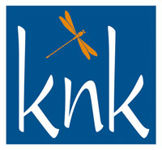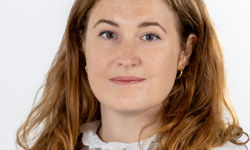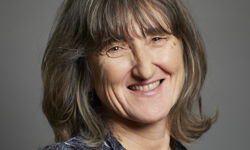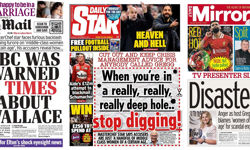Not too much can be said about one of the most interesting sessions at the Society of Editors conference in Carlisle.
The most remarkable thing was that it happened at all, and both sides were almost equally surprised.
In another move towards greater openness, two senior “civil servants” from GCHQ, the government intelligence and security centre in Cheltenham, came to talk to editors.
Individual identities and tradecraft – how they do their job – were off the agenda but apart from a display of greater openness, GCHQ had two important messages to deliver.
The first was that their work had changed in the internet and social media age and broadened from core defence and counter-terrorism.
Anything that threatened UK prosperity was now central, and high up that agenda was cybercrime and the increasing need to protect the integrity of networks. The work went far beyond defence and government networks and included everything from transportation and pharmaceuticals to the media and broadcasting.
Cyber threats knew no discrimination and that was why a new National Cyber Security Centre had just been set up in London.
Once the GCHQ press office involved little more than saying “no comment”. Now they will try to help as much as possible, and want to be seen to be accountable.
The GCHQ executives were keen to emphasise that they did not randomly listen to citizens’ phone calls but instead dealt with packets of electronic information looking for unusual patterns. Anything else took place under strict legal protocols.
Why, the more open GCHQ now has its own Twitter account and has just published its very own puzzle book.
IPSO vs Impress
The spooks stayed to dinner and were able to hear Sir Alan Moses, chairman of the Independent Press Standards Organisation (IPSO), warn that the press would be doomed if it allowed the government to “corral” it into a state-backed regulator.
Sir Alan said that the government was trying to use Section 40 of the Crime and Courts Act 2013 as a stick to beat an independent press into submission. Under Section 40, newspapers would have to pay all costs in libel and privacy cases even if they proved in court that the plaintiff was lying.
“You should be wary, very wary, very wary indeed of anything that looks like an attempt to corral you into submission,” Sir Alan said.
The SoE has been among those groups campaigning against Section 40 and soon after the conference, it looked like victory – at least for now.
The Press Recognition Panel, set up under Royal Charter, has recognised Impress, the regulator mostly funded by Max Mosley.
But culture secretary Karen Bradley has indicated that she does not intend to implement the more “punitive” aspects of Section 40, although it could still be brought in at any time by statutory instrument.
Another small victory has been won in what seems like a continuing running battle with the police over access to information.
Press / police relations
After complaints from editors, the College of Policing is planning to drop a detailed list directing police officers to seek the help of press officers before talking to journalists on a wide range of issues from fatalities and missing persons to any enquiries about sex offenders or hate crimes.
Alex Marshall, college chief executive, said he would probably take the list out.
“We thought it was being helpful and positive, but it’s had a negative response,” Marshall conceded.
Other contentious issues remain, including the ability to name accident victims. The “ownership” of the information rests with the coroner rather than the police, Marshall insisted, even though coroners routinely then said “no comment”.
Former Westmorland Gazette editor Mike Glover told the conference that people were dying in secret as a result of the policy.
Local police say they are following national guidelines by not naming such people and transfer inquiries to the coroner who doesn’t talk to the media, in what looks like a Catch 22.
“Someone can fall off a mountain and be helicoptered to Preston and there is no way to relate the person who has died to the person who has fallen off the mountain,” Glover argued.
Local democracy reporters
One other persistent adversarial relationship – that between the BBC and the local press seems to be taking a dramatic turn for the better. The two sides are working closely together on the creation of 150 new “local democracy reporters” paid for by the BBC yet working for local news organisations. They could be in place for next year’s local elections in May.
Trials are already under way at two regional titles in the North East and first signs look promising.
The BBC has set aside £8 million for a package to address a “democratic deficit” created because local newspapers cannot afford the staffing levels of the past – although not everyone accepts the democratic deficit concept.
Concerns were expressed about who would control the 150 reporters – the risk of “one man, two masters” and worries that some existing reporters might lose their jobs as a result of the “free” reporters who would in general be deployed to cover “top-tier authorities”.
There was a general welcome for the package, which will also include the creation of a news bank of audio and video content which could be reused by local media outlets after being on BBC channels and a new shared data unit to train journalists in the increasingly important data journalism discipline.
Matthew Barraclough, editor of the BBC Local Journalism Working Group, said that the types of stories produced by the new local democracy reporters would “enrich public life and help people get the information to play an active part in public life”.
Robots
There was considerable emphasis at the conference on new technical gismos and new ways of working.
Perhaps the most dramatic developments came from Pete Clifton, editor-in-chief of the Press Association, who said that not only has the PA its own drone and 360-degree cameras but was starting to use robots to assemble simple news stories about business, sport and election results. Drone footage of Poldark had received two million hits.
PA executives were going to Denmark where the Ritzau news agency already used automated reporting technology.
Clifton said robots would not replace PA journalists but would support the newsroom.
The PA editor-in-chief said Ritzau’s automated production of hundreds of market reports was more accurate than someone trying to write too many stories on their own.
“Will it take over from proper journalists? Of course it won’t. We won’t have a robot going to a big fire or covering a crown court case,” Clifton promised.
Marc Settle, a BBC Academy trainer, told the conference how journalists using smartphones could go far beyond texting. They had in effect “a multimedia newsroom in their pocket”.
By adding a small pack of accessories for under £100, including an external microphone, light and small tripod, a reporter’s ability to produce high quality sound and video, when out and about, could be transformed.
Catherine Houlihan, managing editor of ITV Border cautioned against expecting everyone to do everything, while accepting that making regional television news could be enhanced with an online edge.
The conference heard of the contribution local media made during last year’s floods in Cumbria and a famous Cumbrian, Chris Blackhurst, former editor of The Independent from Barrow-in-Furness, was there to extoll the beauty and distinctiveness of his county.
Blackhurst was also asked how he thought The Independent was doing now that it had gone online only.
The new Indy was getting a lot of clicks but the nature of the internet is that internet readers are always only one click away from going and reading something else, Blackhurst warned.
The online Indy was doing very well on a very tight budget and was a leaner, meaner and fitter company.
“It was a very brave decision (to go online only) and I don’t think they will be the last,” said Blackhurst who said that newspapers should have been a bit braver in the past to open rather than close northern offices and produce stories that better reflected the UK outside of London.
The revenue gap
The most riveting presentation of the conference came unexpectedly in the very session where Clifton and others had been talking about newsroom tools and new technologies.
David Whaley, editor of the Oldham Chronicle, said he planned to talk about new ways of working rather new technological tools.
All the subbing at the family-owned title had been outsourced to Newsquest’s subbing hub at Newport in Wales.
Nine experienced staff with more than 250 years of experience between them had gone in “a heart-breaking experience”, but one that had been essential to cut costs.
As a result of the changes, the newspaper had been able to make a necessary upgrade to its computer system.
But there was more to come from Whaley who said that “print” had seemed like something of a swear word at the conference, barely addressed.
The problem facing Whaley and the Oldham Chronicle is stark and almost certainly reflected at more places than Oldham.
The problem is that print continued to be responsible for 90 per cent of the Chronicle’s revenues while circulation was diving, down 14 per cent last year to 7,343.
Whaley told how a recent story had generated more than 20,000 hits but no rise in print sales.
“We need to find a funding model that is sustainable because the cash cows of cars, jobs and homes have long-since gone and if we lost public notices to the web as well, the balance sheet is scary,” said Whaley who said that, overall, the Oldham Chronicle has gone down from a staff of 250 to 40 people.
“With the pressure on the pension fund deficit and other things, one day we could walk in and the door wouldn’t open,” said David Whaley who clearly hopes that the search for a better funding model for print will be addressed more centrally at the Society of Editors conference in 2017.












